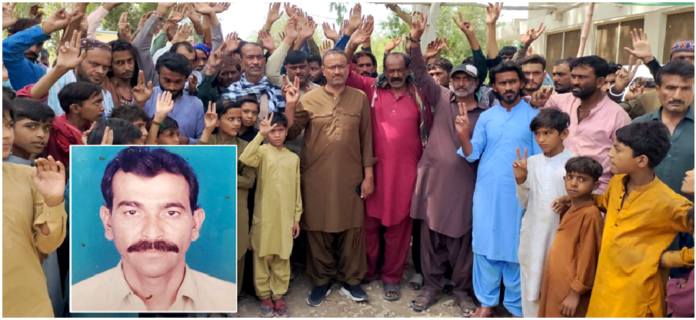CRIME

In a harrowing case of suspected ‘honour killing’, a 40-year-old woman named Pari was allegedly strangled to death by her husband, Ghulam Ali Bugti, at their residence in Shahbaz Goth, located near the Northern Bypass in Karachi.
According to a statement from the Site Superhighway Industrial Area police, the suspect fled the scene and is currently at large. Law enforcement agencies have launched a manhunt to apprehend him. The victim's body was shifted to Abbasi Shaheed Hospital for medico-legal procedures.
Police believe the motive behind the murder was rooted in the toxic and regressive notion of “honour,” a justification still used in many cases of domestic femicide in Pakistan.
This tragic incident adds to a growing list of gender-based violence (GBV) cases reported across the country, where women are routinely killed, abused, or subjected to psychological trauma by intimate partners or relatives.
Earlier this week, a female school teacher in Qambar-Shahdadkot was allegedly killed by her fiancé, a serving police officer, for refusing to marry him. Last week, a pregnant woman was murdered by her husband following a domestic dispute. In March, a woman was gunned down outside Malir court by her estranged husband as she sought khula (divorce), and another woman was stabbed to death in a local hotel by her former spouse.
Despite the frequency and severity of these crimes, conviction rates remain alarmingly low. According to the 2024 report Mapping Gender-Based Violence by the Sustainable Social Development Organisation (SSDO), the justice system is failing victims of domestic abuse:
- Punjab reported 1,167 domestic violence cases with only 3 convictions.
- Khyber Pakhtunkhwa recorded 446 cases, but zero convictions.
- Sindh registered 375 cases, again with no convictions.
- Balochistan, although having fewer cases (160), led with 25 convictions.
The Asian Development Bank, in a 2023 report, labeled domestic violence a "silent pandemic" in Pakistan, highlighting the urgent need for societal reform, better protective laws, and effective enforcement.
Activists and rights groups are once again urging the government to treat gender-based violence as a national emergency and to close the gap between policy and implementation.
Pari's murder is not just another statistic — it is a stark reminder of the urgent need for accountability, protection, and change.




